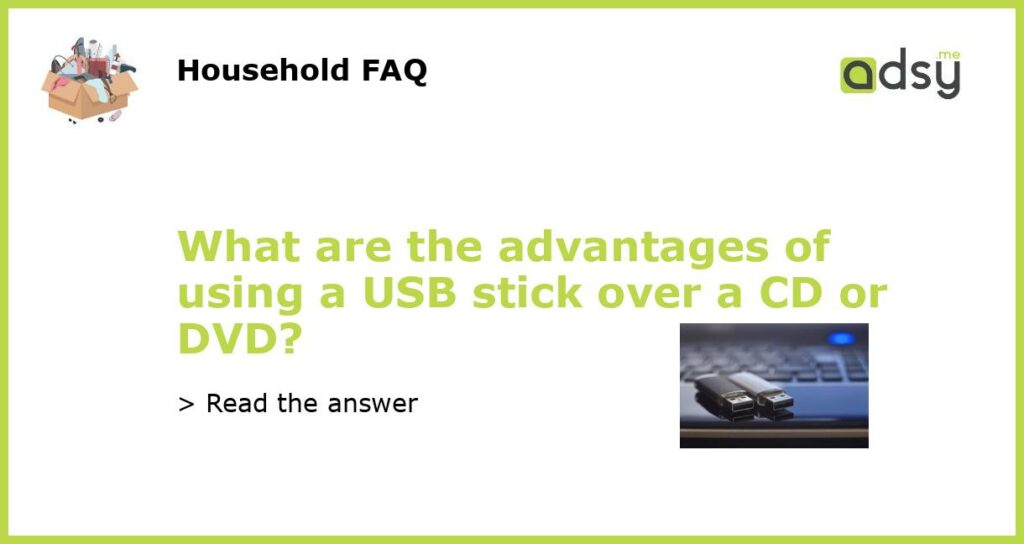Advantages of Using a USB Stick Over a CD or DVD
USB sticks, also known as flash drives, have become increasingly popular as a portable storage solution. With their compact size and large storage capacity, they offer numerous advantages over traditional CDs and DVDs. In this article, we will explore five key reasons why using a USB stick is more advantageous than relying on CDs or DVDs for storing and transferring data.
Greater Storage Capacity
One of the most significant advantages of USB sticks is their larger storage capacity compared to CDs and DVDs. While CDs typically have a storage capacity of 700MB and DVDs can store up to 4.7GB of data, USB sticks can store much more. USB sticks are available in various capacities ranging from 2GB to 1TB or even higher. This means you can store a larger volume of files, documents, photos, videos, and music on a single USB stick, making it a more convenient and efficient storage solution.
Enhanced Speed and Performance
USB sticks offer higher data transfer speeds compared to CDs and DVDs. The read and write speeds of USB sticks are much faster, allowing you to quickly access and transfer files. USB 3.0, the most widely used USB standard, can deliver data transfer rates of up to 5Gbps, significantly faster than the transfer rates of CDs and DVDs. This enhanced speed and performance make USB sticks an ideal choice for those who frequently transfer large files or need quick access to their data.
Reusability and Durability
Unlike CDs or DVDs, USB sticks are reusable and more durable. CDs and DVDs have a limited number of write cycles, meaning you can only burn data onto them a certain number of times before they become unreadable. In contrast, USB sticks can be rewritten and reused countless times without deterioration in performance. Additionally, USB sticks are more resistant to scratches and physical damage compared to CDs and DVDs, making them a more reliable and long-lasting storage solution.
Compatibility and Portability
USB sticks are widely compatible with various devices and operating systems. Most modern devices, such as computers, laptops, tablets, and even some TVs, feature USB ports, allowing you to easily connect and access data stored on a USB stick. On the other hand, CDs and DVDs require specific optical drives to read and write data, making them less compatible with newer devices that are designed without optical drives. USB sticks are also extremely portable due to their small size and lightweight design, making them convenient to carry around and transfer data between different devices.
Data Security and Encryption
USB sticks offer greater data security and encryption options compared to CDs and DVDs. Many USB sticks come with built-in encryption features, allowing you to password-protect your files and ensure that sensitive data remains secure. This is particularly useful for individuals or businesses dealing with confidential information. In contrast, CDs and DVDs do not have these built-in security features, making them more vulnerable to unauthorized access and data breaches.
In conclusion, USB sticks provide several advantages over CDs and DVDs, including greater storage capacity, faster transfer speeds, reusability, durability, compatibility, portability, and enhanced data security options. With their versatility, convenience, and reliability, USB sticks have become the preferred choice for many individuals and businesses for storing and transferring data.






